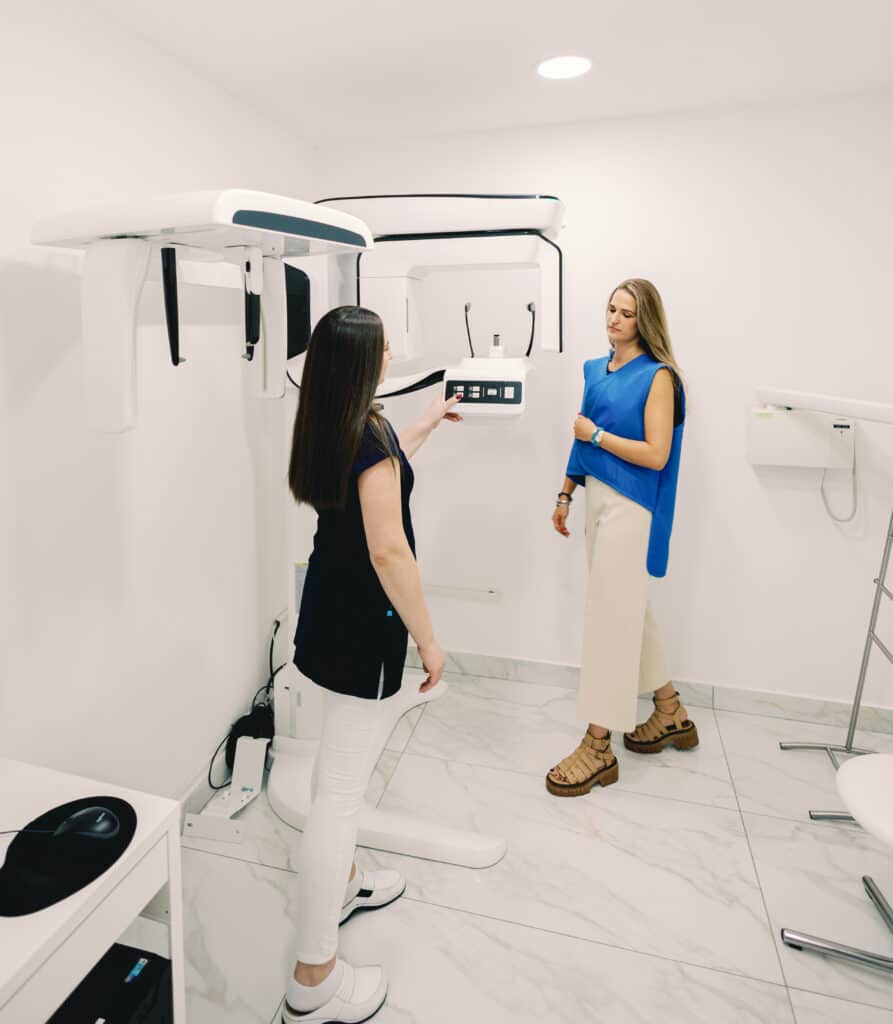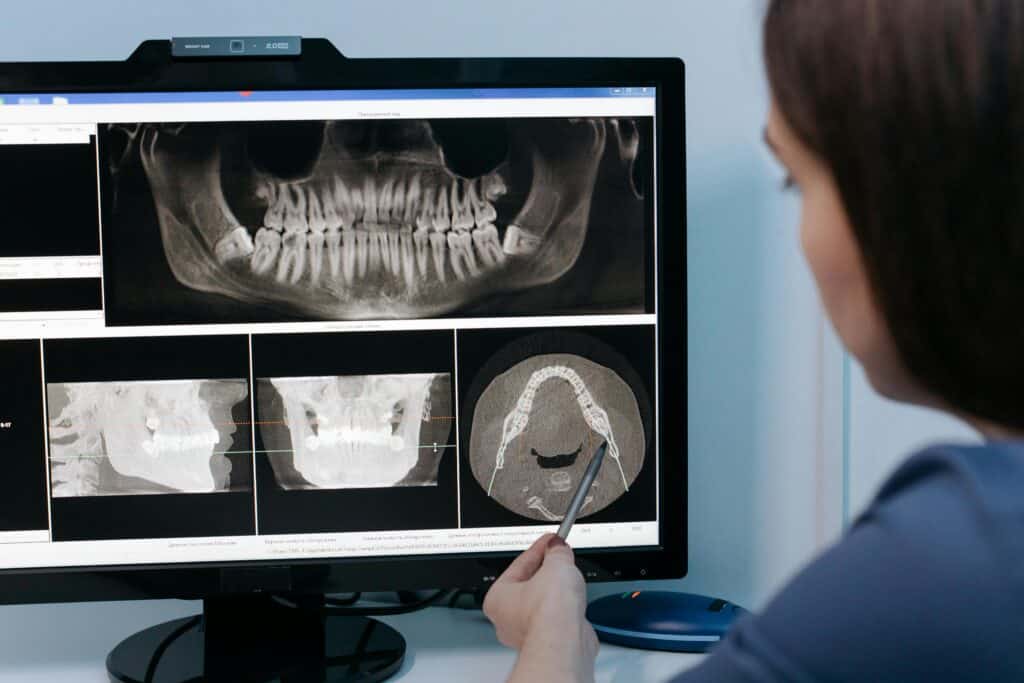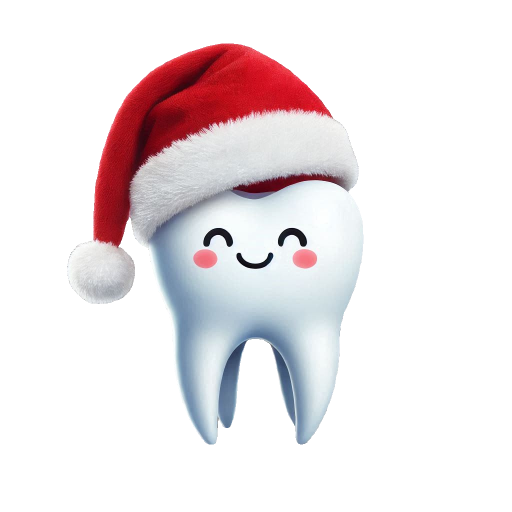The health of our teeth is essential to our overall well-being. Hence, annual dental checkups are vital for timely detection of potential issues, but dental panoramic X-rays play a crucial role in identifying problems that aren't visible during a routine exam.
Why is taking a dental X-ray necessary?
Even though your dentist carefully inspects your teeth and gums, some changes are not visible to the naked eye. X-rays allow us to view the structure of the teeth and jaw, revealing areas that would otherwise stay hidden.
 Dental X-rays are useful for:
Dental X-rays are useful for:
- Detecting concealed tooth decay: In some instances, cavities form inside or between the teeth, making them invisible to the naked eye.
- Identifying issues with the roots of the tooth: By closely inspecting the tooth roots and bone tissue, the dentist can detect inflammation, infection, or other underlying issues.
- Diagnosing dental abnormalities: For children and adolescents, it's crucial to assess the position of developing teeth before starting orthodontic treatment.
- Identifying cysts, tumors, or other abnormalities: Dental X-rays offer the chance to identify potentially harmful changes early.
Benefits of modern dental X-rays
Many patients worry about the potential health risks of X-ray radiation. However, modern digital X-rays use minimal radiation, much less than other types of medical X-rays. Additionally, digital images are available immediately, speeding up both diagnosis and treatment.
When is a dental X-ray required?
- As part of an annual check-up: Prevention is always the best approach. Regular X-ray exams enable the dentist to identify issues even when you have no symptoms.
- In case of new symptoms: If you experience pain or sensitivity, an X-ray can help identify the underlying cause.
- Prior to an orthodontic treatment: A precise understanding of the teeth and jaw structure is crucial for developing an effective orthodontic plan.
To sum up: Dental X-rays are invaluable for uncovering hidden dental issues and planning suitable treatments. The next time you visit the dentist, keep in mind that X-rays are not merely an extra examination but a vital component of comprehensive diagnosis and preventive care.


